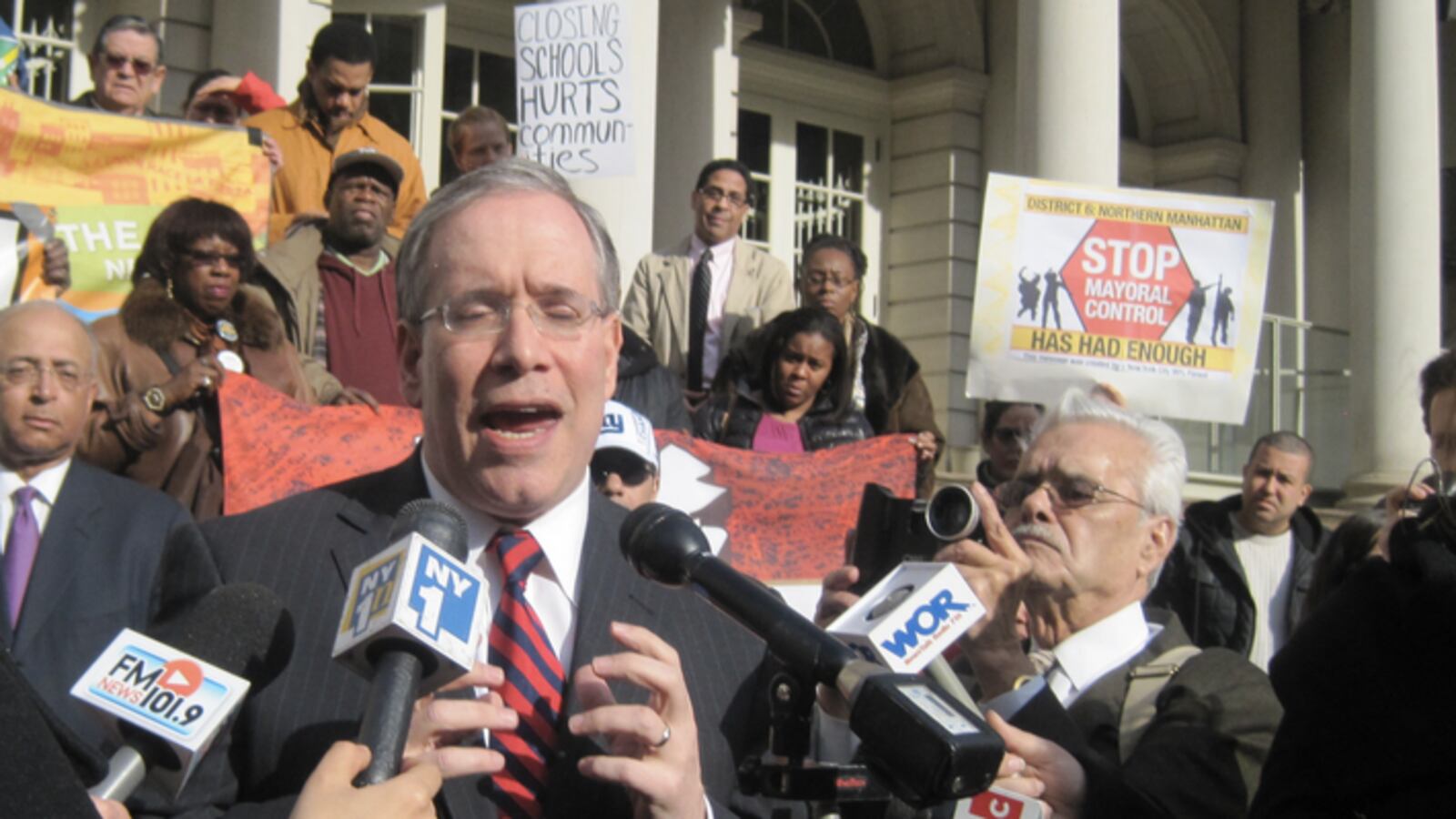Armed with new legal authority to go after charter schools, Comptroller Scott Stringer said Thursday that he will probe the balance sheets of the city’s largest charter school network and three other charter schools.
Success Academy Charter Schools, the 32-schools-and-growing charter management organization, is among the schools that Stringer announced that he will audit. A state law passed in April authorized the city comptroller to audit the finances of city charter schools, which are otherwise overseen by the State University of New York and the State Education Department and are exempt from most of the regulations that govern traditional public schools.
“My office is going to make sure that taxpayer dollars are being used appropriately and that proper controls are in place to ensure that all young New Yorkers are getting the quality education they deserve,” Stringer said in a statement.
Stringer’s office will also audit the South Bronx Charter School for International Cultures and the Arts and Merrick Academy in Queens, both of which are run by the for-profit Victory Education Partners. Merrick Academy has battled with the United Federation of Teachers over the union’s organization efforts at the school. The third school to face new scrutiny is New Beginnings Charter School in Bedford-Stuyvesant.
All but one of those schools bested their local district’s averages on state exams. Only Merrick Academy’s English scores lagged behind that of its local district.
Success Academy, founded by a political rival of both Stringer and Mayor Bill de Blasio, has become the city’s most controversial charter school network and will make up the majority of Stringer’s promised audits. Back in 2005, Stringer beat then-City Council Member Eva Moskowitz in a bitterly contested race for Manhattan borough president. Moskowitz founded Success Academy Charter Schools a year later, and has since grown the network to 32 schools, which regularly post some of the highest average scores on state exams. The network will reach 50 schools over the next two years.
As the network has grown, Success Academy’s finances have faced constant scrutiny. Moskowitz earns nearly $500,000 a year, more than double that of the city schools chancellor, and critics point to the network’s extensive private fundraising as the cause of inequity and tensions between her schools and the traditional public schools with which they share buildings.
Officials for the comptroller’s office said they selected the schools because they varied in size, geography and structure, and picked Success Academy because of its size and because some of its financial information is publicly available.
In a statement, Moskowitz said she is confident that Stringer’s audit will show that the network has used its money appropriately.
“Success Academy spends less per student than district schools but has more than double their proficiency rates,” Moskowitz said in a statement.
But there is some disagreement over what, exactly, Stringer will be able to probe in his audit. A spokesperson for the comptroller was adamant that city law permits Stringer to look into anything that uses city money, which would allow him to examine school operations.
But New York City Charter Center CEO James Merriman disputed that claim, saying that only state authorizers have that power under the state’s charter law.
“Financial audits are part of a strong oversight process to ensure transparency and accountability but the Comptroller’s office does not have auditing power over charter school operations as his statement suggests,” said Merriman.
Charter schools already must hire independent auditors to probe their finances once a year. Stringer first promised additional outside scrutiny in March.

